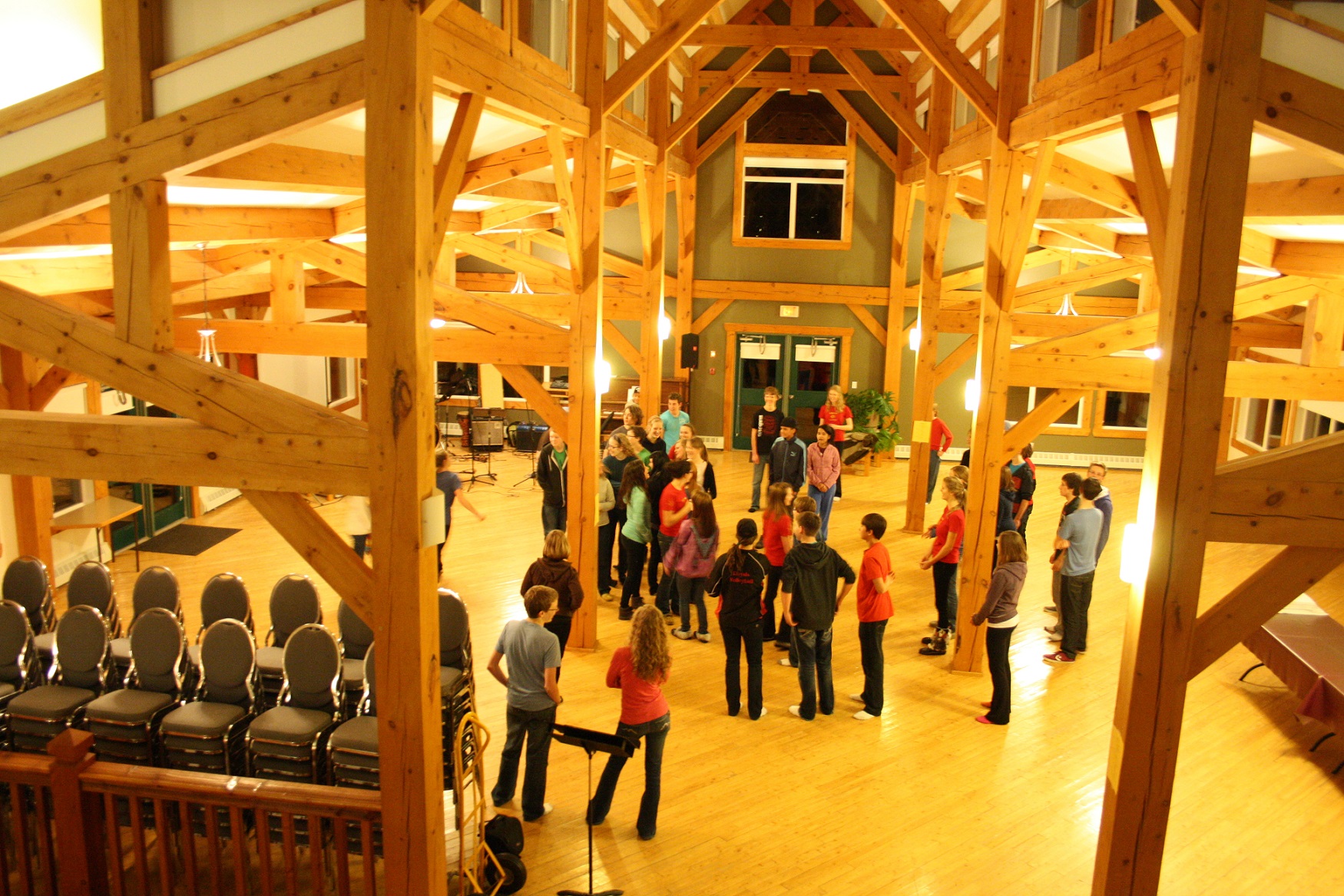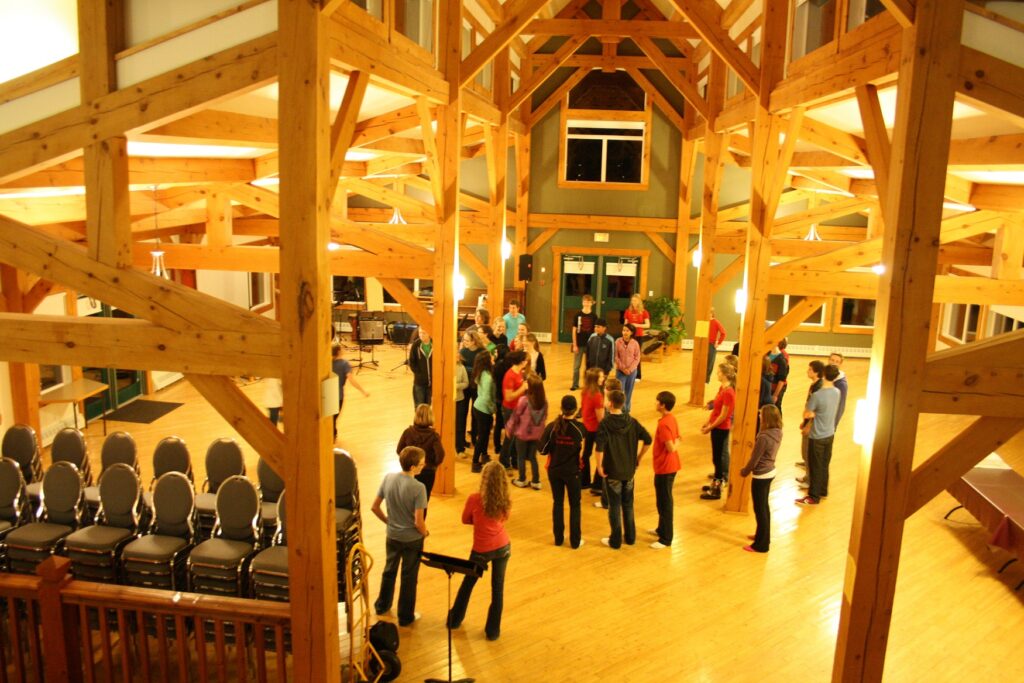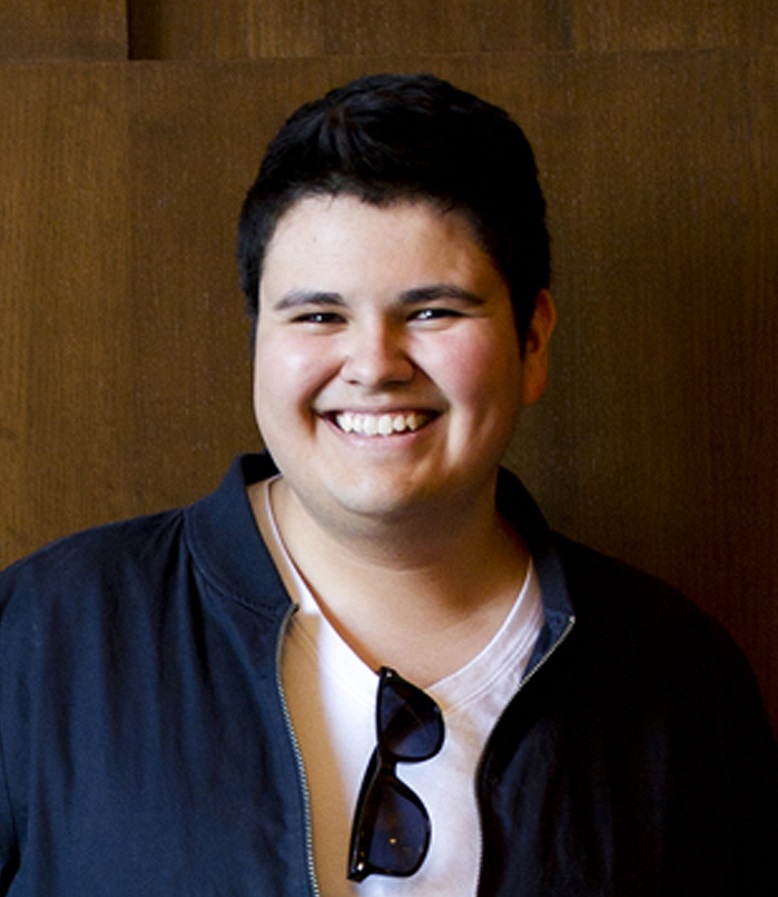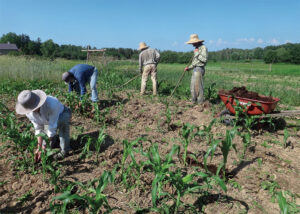Love, sex, and baptism are seemingly unrelated topics, but according to Irma Fast Dueck, they each involve a deep commitment.
Roughly sixty youth, youth pastors, and youth sponsors gathered on the last weekend of January 2012, at Shekinah Retreat Centre near Waldheim, Sask., to hear Fast Dueck, share her insight into what seems like a strange union of topics on the surface. To relate these ideas and shape the weekend’s conversation, Fast Dueck asked question during the opening session, “What does it take for us to go the whole distance? To go all the way?”
It is important for the church to talk to youth about commitment because they don’t see it modeled elsewhere, said Anna Rehan, youth minister for Mennonite Church Saskatchewan. “Everything is about instant gratification, one-night stands, if it feels good do it,” she said in an email, “adults are leaving relationships for something better . . . or different, they don't want to have to work at things and it's easier to start again.”
Fast Dueck had the youth discuss the social issue of co-habitation, and what the implications of co-habitation were for youth and young adults who were considering living together before marriage.
Fast Dueck, associate professor of Practical Theology at Canadian Mennonite University, presented research from the National Marriage Project at the University of Virginia that suggested “the quality of relationships for those who cohabit pre-marriage report poor relationships.”
Two youth from Wildwood Mennonite Church, Emily Hamm and Ian Epp, said Fast Dueck’s message made an impression, “Ads, TV shows, and movies show that you don't need to be committed for things to work in relationship,” Epp said.
Hamm agrees with Epp, adding that, “There are so many misconceptions, especially on the topic of living together before marriage, that hearing the facts and statistics first is extremely important,” she said.
For Silas Friesen discussing commitment is important because of our consumer society that encourages youth to keep looking for something new and better. “We are not of this world, we are of God's world,” he said in an email, “Let us embrace the everlasting love and commitment of God by committing ourselves, in life or death, sickness or health, to another.”
Another facet of relationships explored this weekend, is the one formed with the church through baptism. One of the key problems that link the issue of co-habitation and baptism together is the issue of low personal commitment. Epp feels that there is a very real problem with youth not committing to things like relationships. He feels that this is an area that youth can work on.
“The reality is, youth need to learn to follow through with things, whether it would be school work, jobs, relationships, and all things that need a certain level of commitment,” Epp said.
Fast Dueck emphasized that while interest is high in church and Christianity among youth and young adults, the actual act of committing to the church and becoming a member through the waters of baptism is low.
For Hamm, one of the possible reasons for low commitment in relationships and to the church is that, “commitment is one of the scariest things for teenagers, and they only show their commitment when they are forced to, not when they feel ready to commit.”
Fast Dueck remedied the fear by presenting the idea that what we believe about water, the church believes about baptism. We believe that water cleans and nourishes us. Also we believe water is a force to be reckoned with, it kills us.
“In baptism, you lose your identity. In Christ you are not the definitions you define yourself by. In baptism, we drown those definitions. In baptism, we are all brothers and sisters; that is the miracle of baptism.” she said.
After leaving the retreat, Hamm left with a certainty that baptism was not about having all the answers. “Getting baptized doesn’t necessarily mean you know everything, It means you simply want to learn more,” she said.
For Epp, going into the retreat he felt unsure about committing to the church through the sacrament of baptism. After, however, he may be in a different place.
“I am on fence about it. But after I do think about it more, and if I'm at that stage with God, I could be ready to commit,” he said.
By the end of an exhausting, fun-filled, and thoughtful weekend, Fast Dueck presented a strong, unabashed message about baptism, love and sex, and challenged the youth’s future commitment to each other and to the church.
For Hamm, she felt strongly that Fast Dueck put fears to rest regarding the idea of baptism and what it implied. “Irma was great at putting baptism into perspective, and taking the confusion and fear out of it for us,” she said.
Ben Borne is a fourth year student at Canadian Mennonite University studying Biblical and Theological Studies with a minor in Music. He currently attends Hope Mennonite Church, Winnipeg, Man.










Leave a Reply
You must be logged in to post a comment.